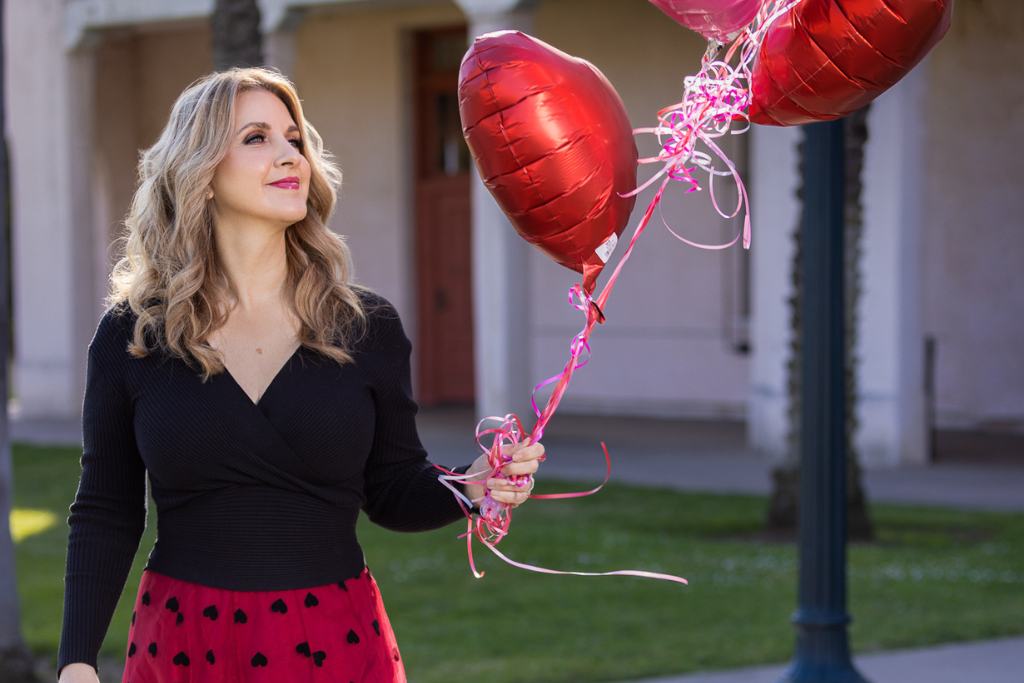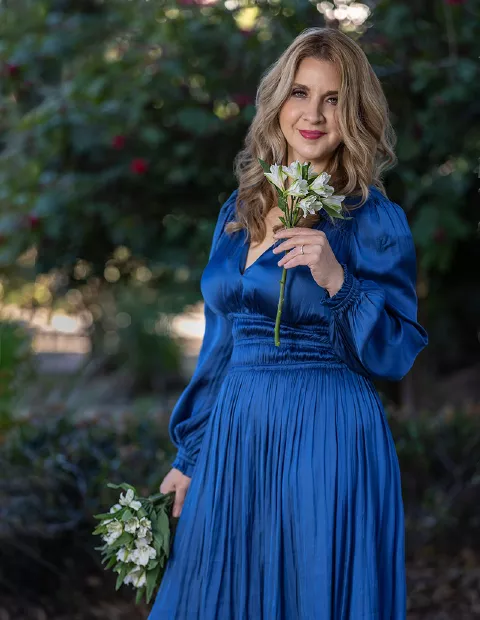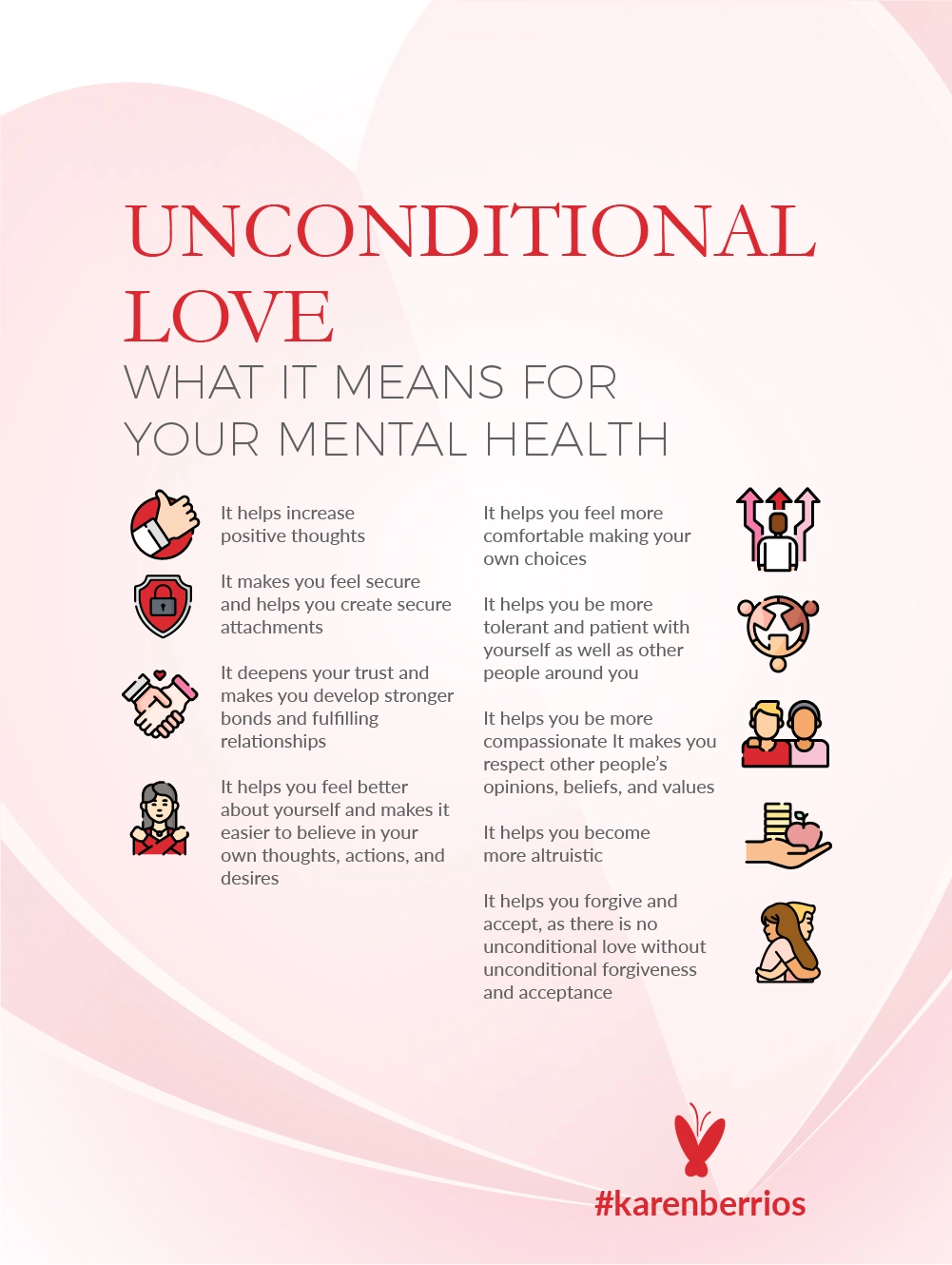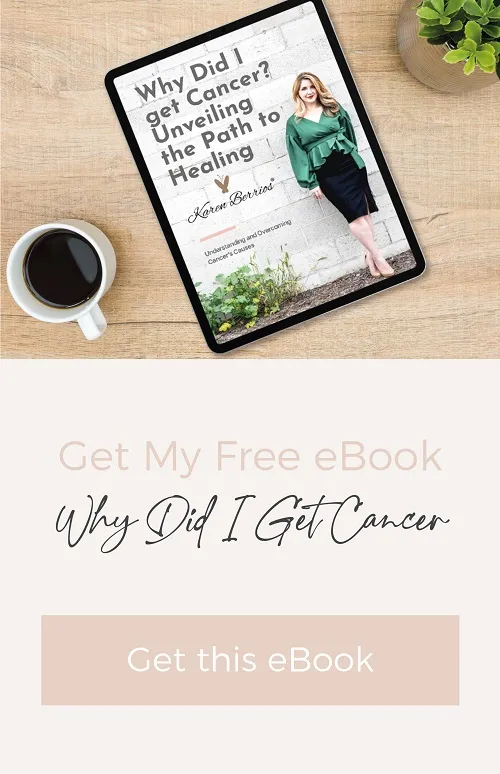

Unconditional Love – What it means for your Mental Health
Loving freely, without conditions or attachments, is considered unconditional love. And although some people believe that to be a myth, others can’t imagine giving themselves to someone fully when there are conditions involved. And now, there are even studies that showcase its benefits for your mental health.
What is Love?
Love is one of the hardest experiences to define and explain, and if you ask ten different people to tell you what love means to them, you will most likely get 10 different answers. Everyone feels love in their own way, and even the love they experience in their lifetime changes, grows, evolves, and even finds a way to get shared across different relationships and relations.
There is no right or wrong way to experience love, but in its raw form, it’s meant to be pure, free, and unconditional. When there are certain restrictions or conditions involved, you’re basically expecting something from the other person in order to feel loved and love them back. And that leaves room for plenty of interpretation, misinterpretation, and struggles.
What is Unconditional Love?
Unconditional love, sometimes also called compassionate love or agape love (stemming from the Greek word for “charity” or the “love of a parent for a child.” ), is selfless, freeing, and it allows you to not only be yourself, but allows the person on the receiving end to be themselves as well. There are no expectations of getting something in return; you simply love and support, nothing else.
Most people learn about this type of love through religious teachings and believe that it’s the ultimate goal of mankind. The love between humans and God, as well as between humans themselves, as it’s as close to divine love as possible. Unconditional love is not self-centered, carnal, or driven by desires; it’s completely selfless, involves a deeper understanding of one’s thoughts and beliefs, and lowers the risk of any emotional distress, improving one’s psychological well-being.
People also mostly think that unconditional love usually only happens between children and parents, especially through maternal love, which biologically occurs through pregnancy and birth. And yet, they try everything to find it in romantic relationships as well, sometimes by pushing so hard as to accept unacceptable behavior, putting themselves last, and participating in conditional love instead.
Unconditional Love and Mental Health
Science points out how this type of love can have a positive impact on your mental health, from helping you produce positive feelings to having a greatly positive effect on children who were brought up surrounded by high levels of affection. There is even proof of how unconditional love may protect against the harmful effects of childhood trauma, showcasing the powerful impact that this selfless emotion can have long term.
There are several different ways in which unconditional love can have a positive effect on your mental health, and they are all worth noting:
- It makes you feel secure and helps you create secure attachments with people in your life, as children, young adults, or fully formed adults
- It deepens your trust and makes you develop stronger bonds and fulfilling relationships with people you encounter
- It helps you feel better about yourself and makes it easier to believe in your own thoughts, actions, and desires
- It helps you feel more comfortable making your own choices, trusting that even if you fail, you can pick yourself back up and try again
- It helps you be more tolerant and patient with yourself as well as other people around you
- It helps you be more compassionate in your own life, with yourself and others
- It makes you respect other people’s opinions, beliefs, and values, even if you don’t agree with them
- It helps you become more altruistic, developing healthy relationships in which no one is thinking of any benefits of loving someone
- It helps you forgive and accept, as there is no unconditional love without unconditional forgiveness and acceptance
When unconditional love exists, there is no space for low self-esteem, no self-worth, toxic relationships, and mental abuse that makes you put your own needs and emotional well-being aside in order to please the other person in return for their love. It involves unconditional self-love as well, with no strings attached, so you can take care of your own well-being no matter what.
Still, that doesn’t mean there aren’t some healthy boundaries in place. Just because you love someone unconditionally, it doesn’t mean they are allowed to do absolutely everything and have you sacrifice your needs and desires. You are allowed to set boundaries which, when experiencing unconditional love, the other person needs to respect and value. And vice versa.
Conditional Love
On the other side of unconditional love is the type of love where conditions do exist. It can be in a very subtle form which doesn’t have to be fully harmful, but it can cross the line and become toxic, having a detrimental effect on your mental health instead of protecting your well-being.
The premise of conditional love is that it needs to be “earned,” whether the conditions are conscious or unconscious. This makes people feel less secure and scared of making the wrong move as there is less trust and stability. They are usually defined with plenty of “I will do this if you do this for me” sentences, which can only pile on stress and anxiety, having you worry that if you don’t do the said thing, there will be repercussions.
Toxic Love as the Pure Opposite
On the far opposite of unconditional love comes toxic love, the one that harms, hurts, pains, and leaves trauma. It’s not just conditional with conscious conditions, it often involves threats and harmful actions such as emotional (sometimes even physical) abuse, gaslighting, frequent conflict, belittling, guilt-tripping, emotional blackmail, and more.
And even though people think that toxic love can only exist in romantic relationships, it actually often presents itself in familial relationships and friendships too. Just because someone is related to you by blood, it doesn’t mean their love is unconditional. This might be hard to notice because you’d assume they love you no matter what, and that’s why some of the signs might be easy to ignore.
Final Thoughts
From mother’s affection and happily married couples to the love between two best friends and the one you feel for yourself, they should all be unconditional, allowing everyone to be themselves in their most raw, vulnerable, and true capacity. Only unconditional love can help you become free of expectations, judgments, conditions, and unhealthy boundaries, for others and yourself.

hey there
I'm Karen!
I have found my cancer journey to be a positive and profound transformational experience. I’m inspired to share my healing journey here, and trust you’ll find hope, encouragement and purpose as you discover the healing power that lies within you.
Join
The Mailing List!
By signing up for my newsletter, you agree with our Privacy Policy and Terms & Conditions.



